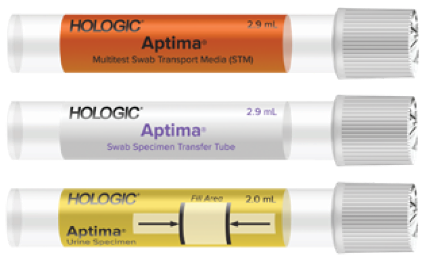STI panels test for all 4 pathogens with 1 urogenital samplea

aSTI panels can be performed with any of the collection devices shown above.

Additionally, Mgen coinfection is common in men
STI panels test for all 4 pathogens with 1 urogenital samplea

aSTI panels can be performed with any of the collection devices shown above.
Although STIs present with similar symptoms, each responds better to different medications. Mgen can be highly resistant to standard first-line antibiotics, in which case, other medications may be necessary to avoid serious complications.
FDA-cleared Aptima Assay from Quest uses nucleic acid amplification testing (NAAT), the preferred method of detection per the CDC.6
Test codes may vary by location. Please contact your local laboratory for more information.
References:
The latest CDC Guidelines recommended considering universal screening with opt-out as part of routine care for all female patients ages 15 - 24.*
*Workowski KA, et al. MMWR. doi:10.15585/mmwr.rr7004a1
With rates of sexually transmitted infections (STIs) on the rise, assessing women who may be high-risk is more important than ever.
Listen to the experts as they discuss STI testing beyond Chlamydia trachomatis and Neisseria gonorrheae.
Contact us to receive additional information on our lab tests, services, and coverage